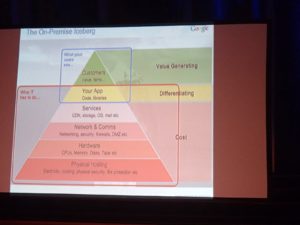Many advocates for a long time have been unhappy with federally funded conferences that have a budget in the six figure area that are only held at luxury hotels. I’ve tried to come up with an alternative to Alternatives. I’m partnering with Paul Komarek of Defying Mental Illness to host our very first event. We’re calling this the UnDiagnosing UnPlanned UnConference series. Our first event is in Cincinnati next week, Feb. 15 – 17, and we’d love for you to come.
Here are the main problems to Alternatives and how we plan to solve them:

Stale ideas – Talking about models that are 30 years old as it they are innovative shows how our community has become a silo and entrenched in our own way of thinking. If these models haven’t scaled up in over 30 years, they are not going to. It’s too hard to find charismatic program leaders who are skilled enough to write a ton of grants but still work for close to free. We need a new business approach. That’s why we’re linking with Innov8 for health, to hear 50 new business ideas from entrepreneurs and inventors making a difference in health care.
Isolated people – How many mental health advocates do you know who spend most of their time with other mental health advocates? What proportion of their friends on Facebook are other advocates? We need to seed our ideas among other people to spread recovery information to them and learn new approaches from them. In our event we are linking with an all day conference on Community Organizing.

The conference planning time – We’ll set the agenda at the beginning of each of our discussion periods and people can pitch ideas they want to talk about and people then vote with their feet. This removes much of the planning needs.
Expensive registration fees: We’ve kept other conference expenses low so our $25 fee just covers two meals that aren’t catered and our room rental and organizing expenses.
Travel expenses – This is where you come in. We have a crowdfunding appeal on MedStartr just waiting for approval for conference travel scholarships of $150 each, enough for a carload of advocates to drive from a local region. The more crowdfunding we can get through our appeal, the more scholarships we can offer.
To see a complete schedule of events, check out our blog on http://wellnesswordworks.com
To register, click RSVP yes on our Facebook event invite, then pay the $25 via the donate button on http://wellnesswordworks.
OR
Use the event brite link: http://mentalhealthtalk.












Thinking of stale ideas…i’m just about finished with recovery as a concept. Not because it’s inherently bad but because mainstream services have decided to implement “Recovery oriented services” in a way that amounts to little more than a re-badge of what they currently do.
I prefer the collective model of recovery discussed below but mostly that’s not what I see.
http://ojs.uwindsor.ca/ojs/leddy/index.php/SSJ/article/view/3499
Uncovering Recovery: The Resistible Rise of Recovery and Resilience
David Harper, Ewen Speed
Abstract
Discourses of recovery and resilience have risen to positions of dominance in the mental health field. Models of recovery and resilience enjoy purchase, in both policy and practice, across a range of settings from self-described psychiatric survivors through to mental health charities through to statutory mental health service providers. Despite this ubiquity, there is confusion about what recovery means. In this article we problematize notions of recovery and resilience, and consider what, if anything, should be recovered from these concepts. We focus on three key issues, i) individualization, ii) the persistence of a deficit model, and iii) collective approaches to recovery. Through documentary analysis we consider these issues across third sector organizations, and public and mental health policy.
Firstly, definitional debates about recovery reflect wider ideological debates about the nature of mental health. The vagueness of these concepts and implicit assumptions inherent in dominant recovery and resilience discourses render them problematic because they individualize what are social problems. Secondly, these discourses, despite being seen as inherently liberatory are conceptually dependent on a notion of deficit in that talk of “positives” and “strengths” requires the existence of “negatives” and “weaknesses” for these concepts to make sense. We argue that this does little to substantially transform dominant understandings of psychological distress. Thirdly, these issues combine to impact upon the progressive potential of recovery. It comes to be seen as an individualistic experiential narrative accompaniment to medical understandings where the structural causes of distress are obscured. This in turn impacts upon the potential for recovery to be used to explore more collective, political aspects of emotional distress.
Drawing on the work of Fraser, we use this critique to characterize “recovery” as a “struggle for recognition,” founded on a model of identity politics which displaces and marginalizes the need for social, political and economic redistribution to address many of the underlying causes of emotional distress. We conclude by stating that it is only when the collective, structural experiences of inequality and injustice are explicitly linked to processes of emotional distress that recovery will be possible.
Report comment
The best discussion I found on this was done by Ron Unger. http://recoveryfromschizophrenia.org/recovery-why-is-it-being-redefined-to-mean-doing-better-but-still-mentally-ill/
So now I just clarify by saying “complete recovery” to differentiate between that and the partial recovery most people are willing to accept.
Report comment
I can almost appreciate “complete recovery” except I was never “sick”. Psychiatry made me sick and the “treatments” reinforced this secondary trauma, the chemical lobotomy and the drugs that caused chronic “illness” and “disability”. But – I do see the benefit to having a term that those who are currently in the system and bought into “recovery = “meds” + a few alternatives”. So this is an effective strategy I think although I personally cannot identify with either. I have nothing to “recovery” except the life and health psychiatry stole from me. Outside of that – I have, since leaving the sickness system, developed the coping and life skills through personal development that has enabled me to overcome and no longer struggle with the normal results of interpersonal abuse/trauma from an early age.
Report comment
Please excuse typos. 🙂
Report comment
Yes, I have read that and I like it as far as it goes. However it still makes recovery a personal/individual thing. Many of the things that exacerbate distress are societal problems. In short how can one completely recover when the person sitting next you can not due to injustice?
The lack of an answer to this question is leading me to question the real value of recovery concepts.
Report comment
When I revised my book DEFYING MENTAL ILLNESS, I kept most of the book focused on a process of recovery, but added a new chapter called “Beyond Recovery” based on the blog post here http://redesigningmentalillness.blogspot.com/2012/07/stop-recovering-start-flourishing.html My new concept is “flourishing.” A normal life, living to one’s capacity, in a way not defined by disability. People perpetually “in recovery” are like folks who climb out of a hole and turn back to gaze at it, entranced, still stuck. You have to walk away from the hole to complete the rest of your life’s journey.
Report comment
Great idea! If I had more to plan for this I would have made the time. Can you do other ones? I didn’t know Ohio had any supporters of this kind. How can others connect with folks at the conference?
Report comment
Capable folks are everywhere, even Ohio. We may do a tour if Corinna and I can figure out logistics. The whole point is to build a network of people who can have a say and collaborate in the real healthcare economy. My contact info is at http://www.churchbasement.net or http://www.humanintevention.net or follow @pkomarek on twitter.
Report comment
I dig the the purpose, the place, the plan, the price, but I don’t have the time in my schedule on such short notice.
I hope you do another one next year, and give more advance notice. Also, I look forward to hearing about it in a later blog! You’ve got great ideas and great gusto Corinna.
Report comment